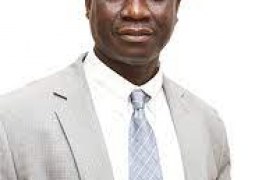Separately, independent experts also concluded that following the completion of a “Virtual Mission” conducted by International Monetary Fund (IMF) officials, “GRA played a major role in seeing to it that taxes are collected in accordance with modern international norms and standards”.
A recent preliminary finding subjected to IMF management approval and also to be presented to the Executive Board for “discussion and decision”, equally confirms that “The Gambia is displaying some early signs of recovery”.
Thus, it is revealed that with the introduction of “modern technology including staff training schemes and skills by the Agency’s management in dealing with taxation… plus consultations with stakeholders fully implemented by Yankuba Darboe, Commissioner General, will help support a comprehensive, robust, and sustainable recovery and growth”.
Thanks to all the efforts, a “healthy, humane and intercontinental tax system is attracting more investors for the country…”
The independent inspection added that such effort is positively pushing The Gambia as a “wide-ranging business destination and aid partners to easily determine the way and manner to go about the country’s tax system”.
In addition, finance specialists also confirmed that “all quantitative performance criteria at end-June 2021 were met by the government”.
The specialists also acknowledged that the International Monetary Institutions “made significant progress in agreeing with the authorities on the financial and economic policies that could support the completion of the third review of the ECF program”
Nonetheless, it also revealed that some structural reforms are progressing, although with “delays” in certain areas.
As such, economic growth reportedly stood at 0.2 percent in 2020; also, there was severe decline in the tourism sector due to Covid 19.
During the period, it was reported that there was a “weak revenue collection and delays in budget support”.
At the moment, gross official reserves have increased by 50 percent since end-2019. It is expected to reach US$350 million in November.
But now economic growth is expected at around 4.9 percent in 2021 and strengthening further to an average of 6 percent per year. Consequently, “consultations” would continue on the 2022 budget.
Following the endorsement, about US$7 million would be made available to the country.
The Gambia has also benefited from an IMF Rapid Credit Facility disbursement of US$ 21.3 million.
The country is also receiving “debt service relief” from the IMF under the “Catastrophe Containment and Relief Trust”. The amount is expected to total US$5.83 million. It has already been approved.
According to the findings, at the moment, gross official reserves have increased by 50 percent since end-2019. It is expected to reach US$350 million in November.
Notwithstanding the support and contribution by the donor community including loans and grants, experts asserted that a “dynamic and vigorous tax system” is indispensable in a competitive global market in order not to only attract more investors but for a viable economic growth for developing countries.




